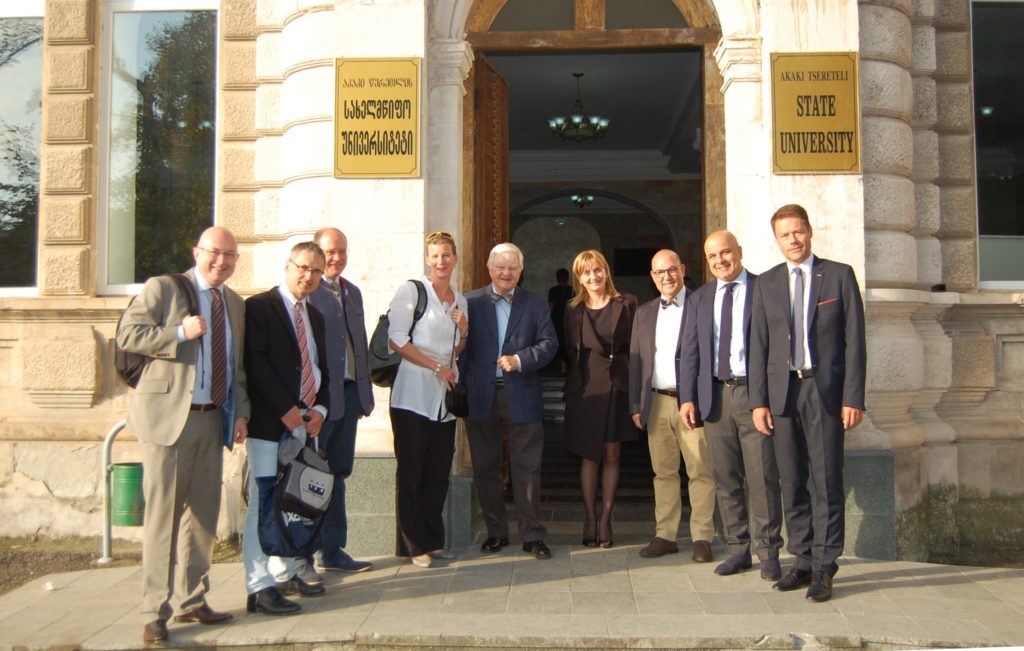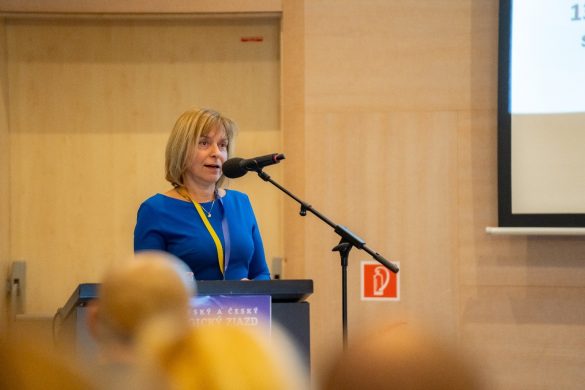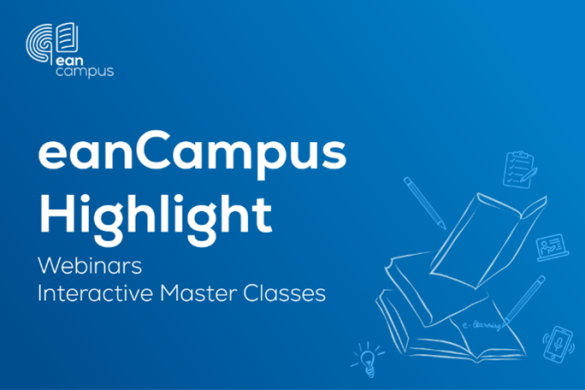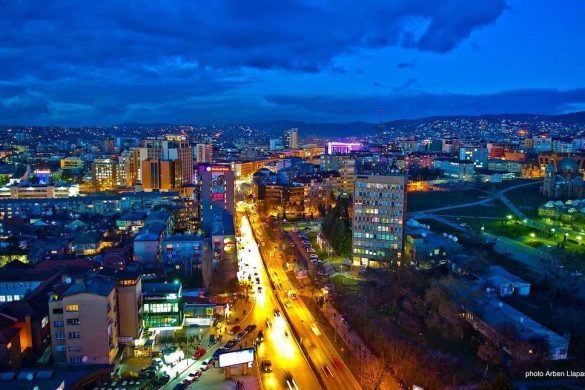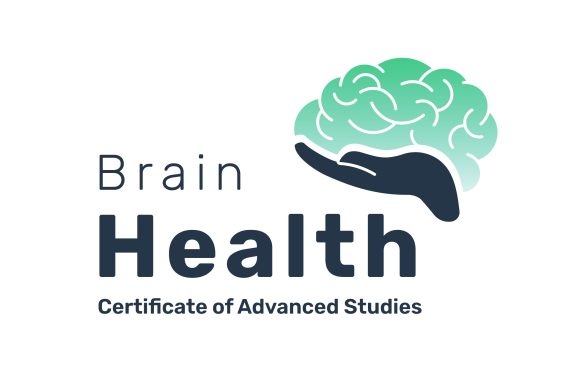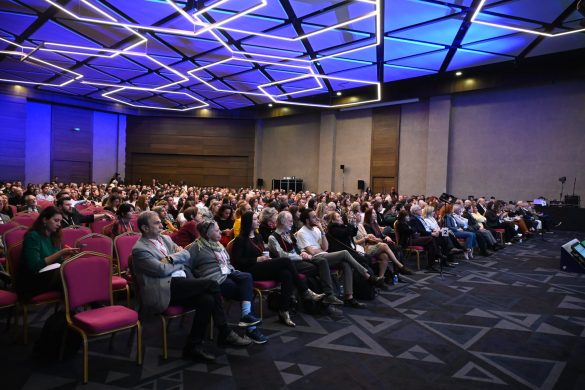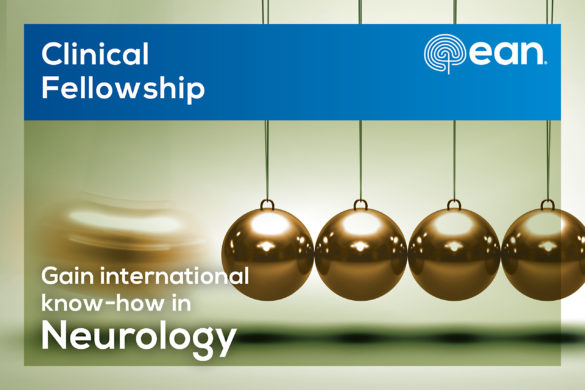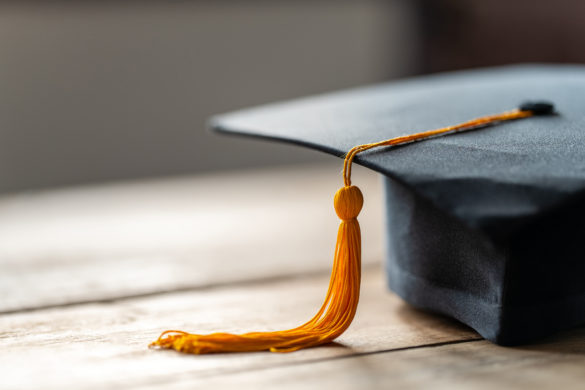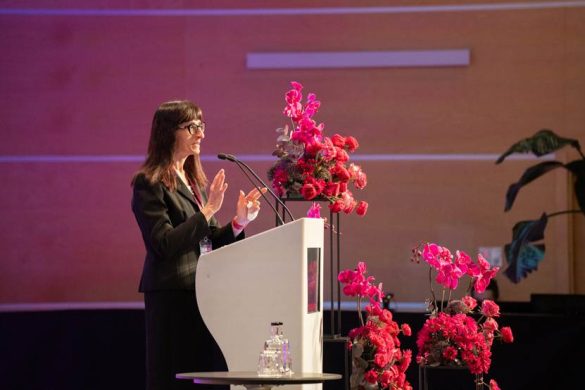by Julia Mayer
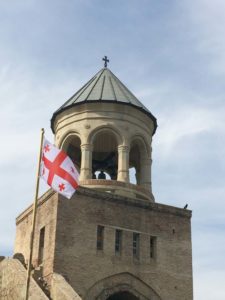 After 14 years, the EAN Regional Teaching Course took place in Georgia again, but not in the capital of Tbilisi, but a 4-hour drive away, in the 2nd largest town, Kutaisi, which is an old University town and the administrative and cultural Capital of the western part of Georgia.
After 14 years, the EAN Regional Teaching Course took place in Georgia again, but not in the capital of Tbilisi, but a 4-hour drive away, in the 2nd largest town, Kutaisi, which is an old University town and the administrative and cultural Capital of the western part of Georgia.
The organizers, Professor Zaza Katsarava from Essen, Germany and Dr. Tamar Janelidze from Kutaisi, have over the years started to bring new knowledge to the region and improve medical care in Georgia. With the help of the EAN Regional Teaching Course (RTC) programme, and together with local partners such as the University of Kutaisi and the Hospital group “EVEX” a further step was accomplished.
Since all flights from Western Europe land in Tbilisi in the middle of the night, we traveled a day in advance, in order to be back on track by the time the course starts. Georgia is situated between the big and small Caucasus and in-between the two large continental seas, the Black Sea and the Caspian Sea, a good four-hour flight from Munich. Therefore, we used the opportunity and the nice offer from the organizers, to travel even one day earlier in order to see some of the countryside.
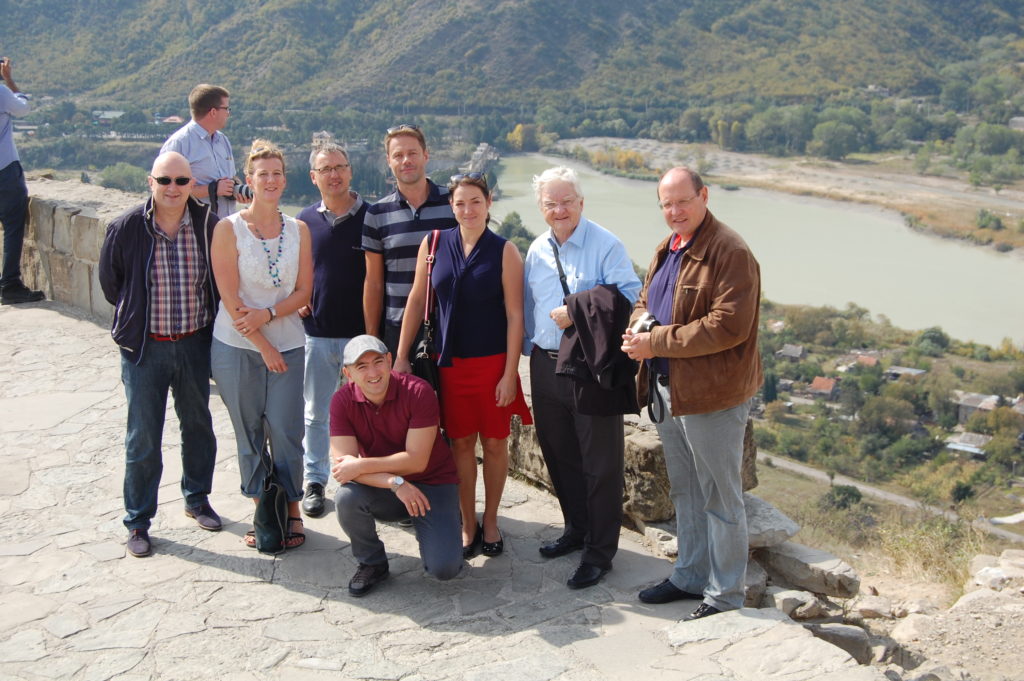
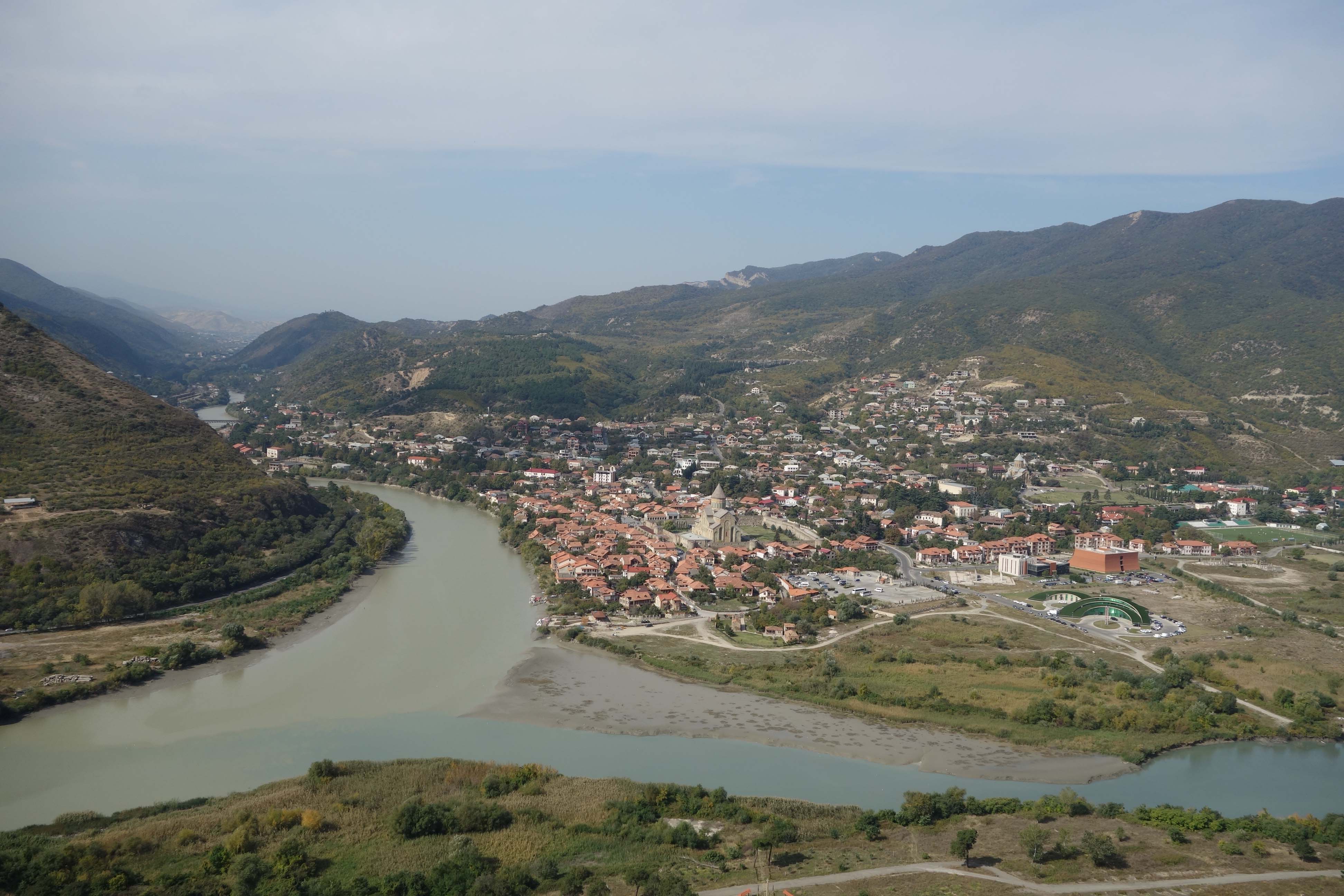
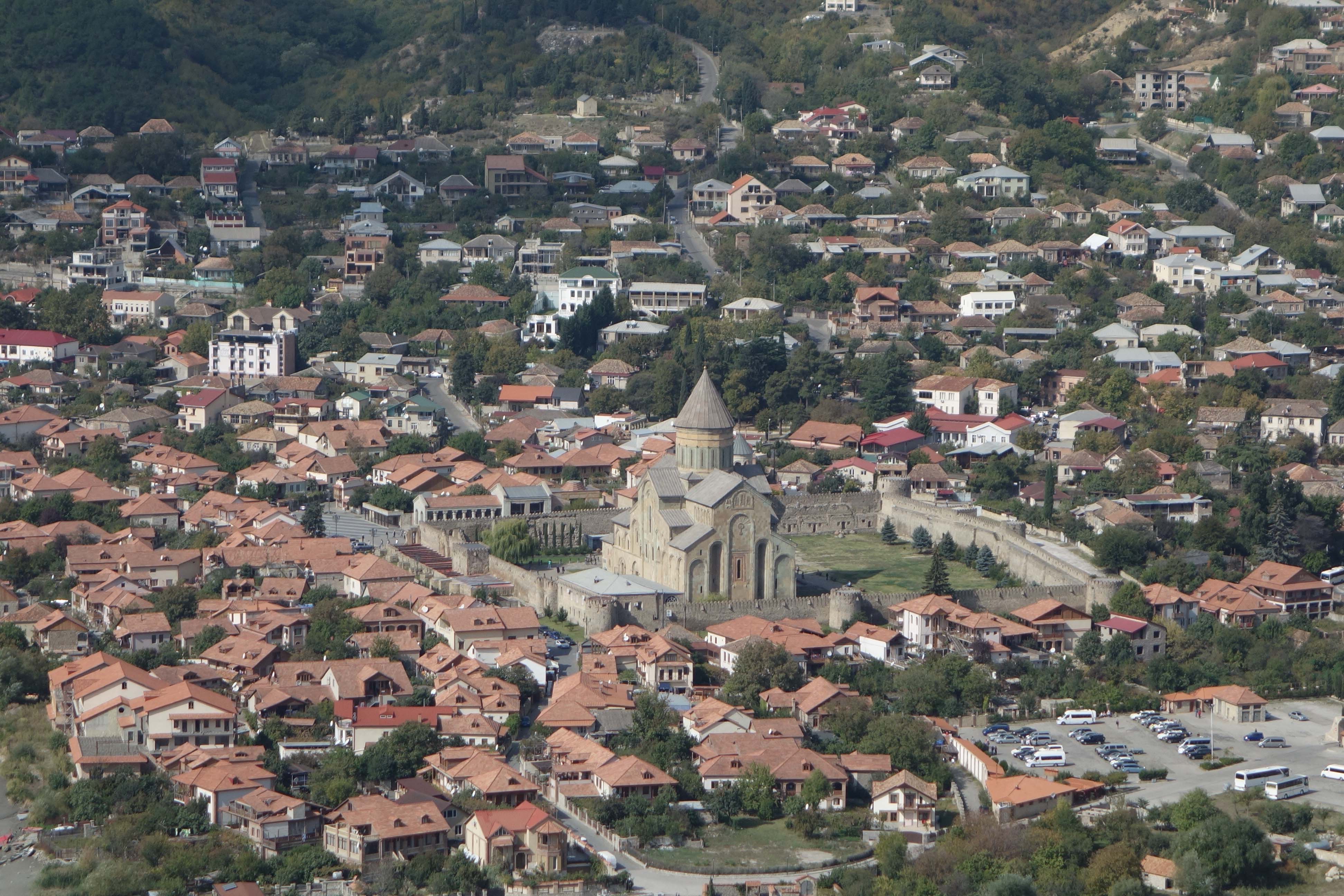
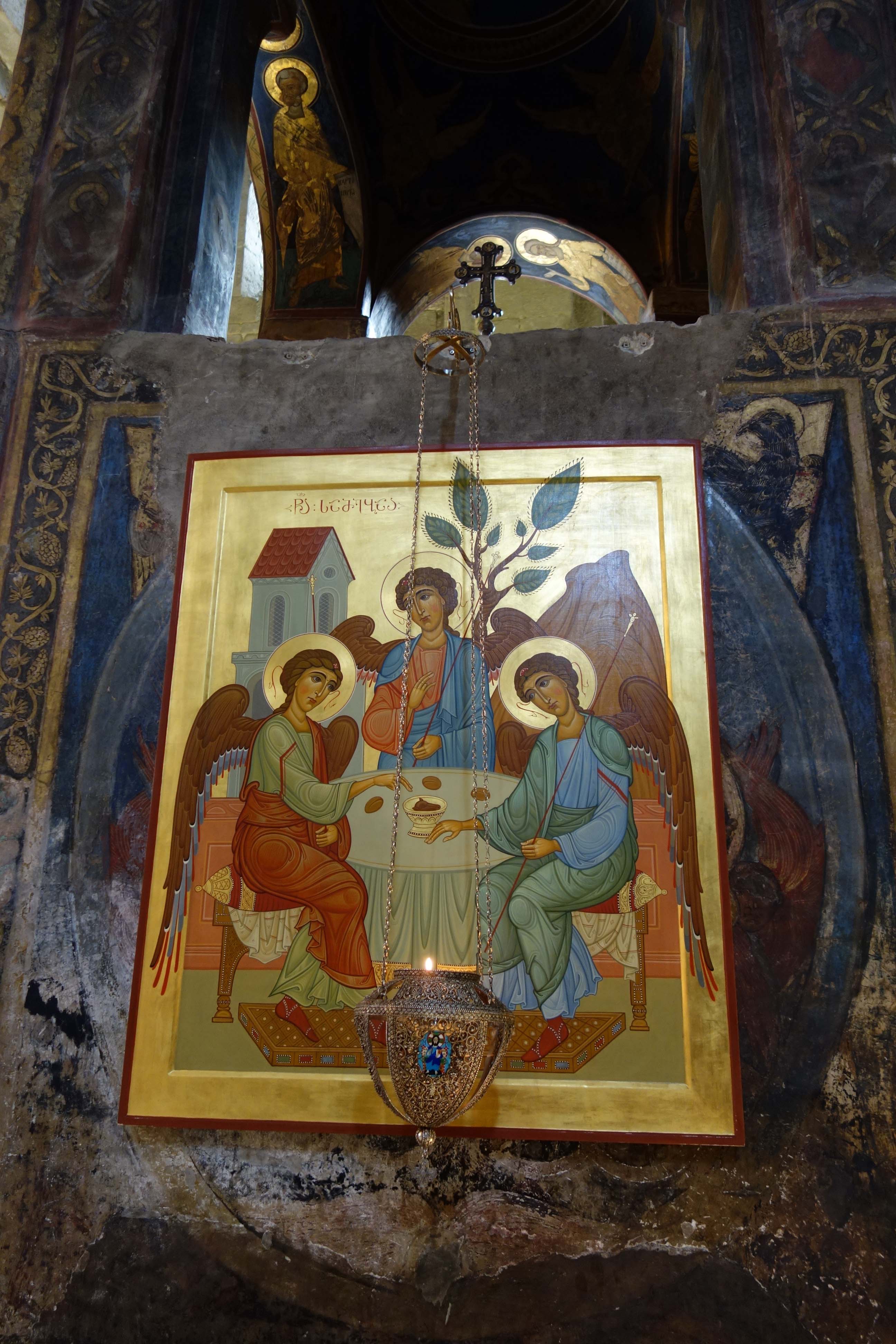
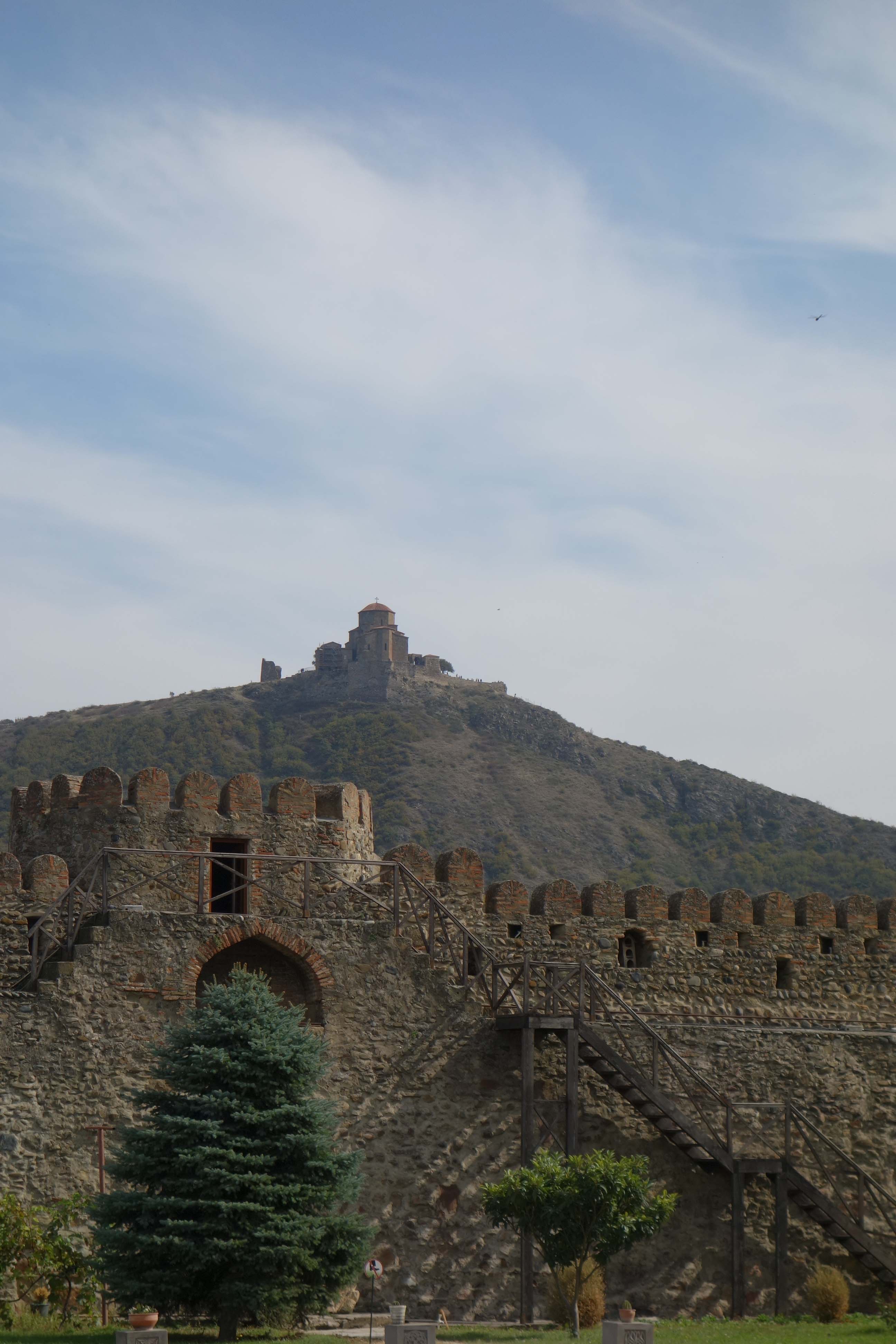
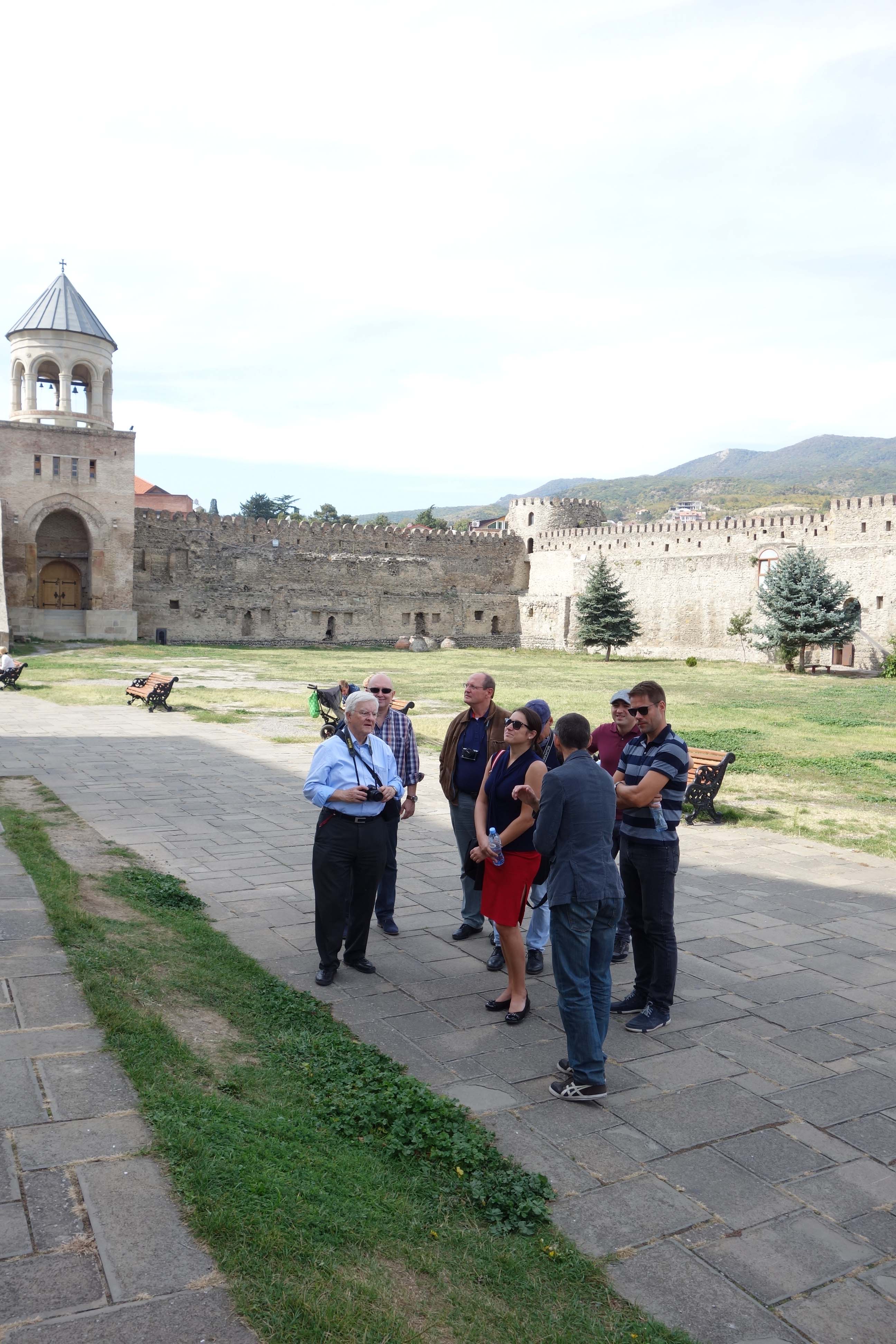
On our first day in Tbilisi, our guided tour (in English) took us to the old capital of the Kingdom of Iberia (former Georgia), Mtskheta, where we also visited the Cathedral Svetitskhoveli and old monastery Jvari, which is a place of pilgrimage since the 4th century when Saint Nino set up a large wooden cross that was, legend says, able to fulfill miracles. The tour was very interesting, we learned a lot about the history and the royalties that used to reign the country. It is amazing, Georgia has only 4 Mio inhabitants, but its very own language and alphabet, that no one else in the entire world speaks or writes.
Back in Tbilisi we visited the two hilltops with fantastic views over the city and enjoyed the short rides on a funicular and a gondola, just to walk down towards sunset and take in the atmosphere that Tibilisi had in offer for us.
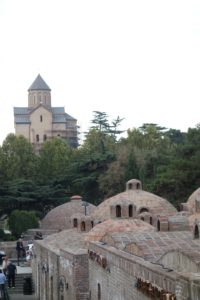
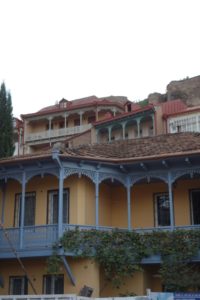
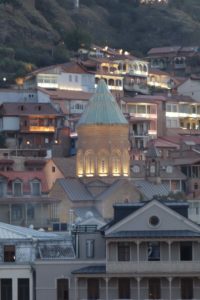
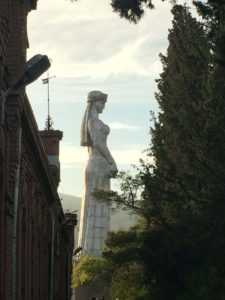
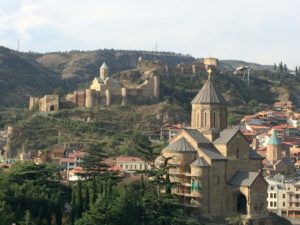
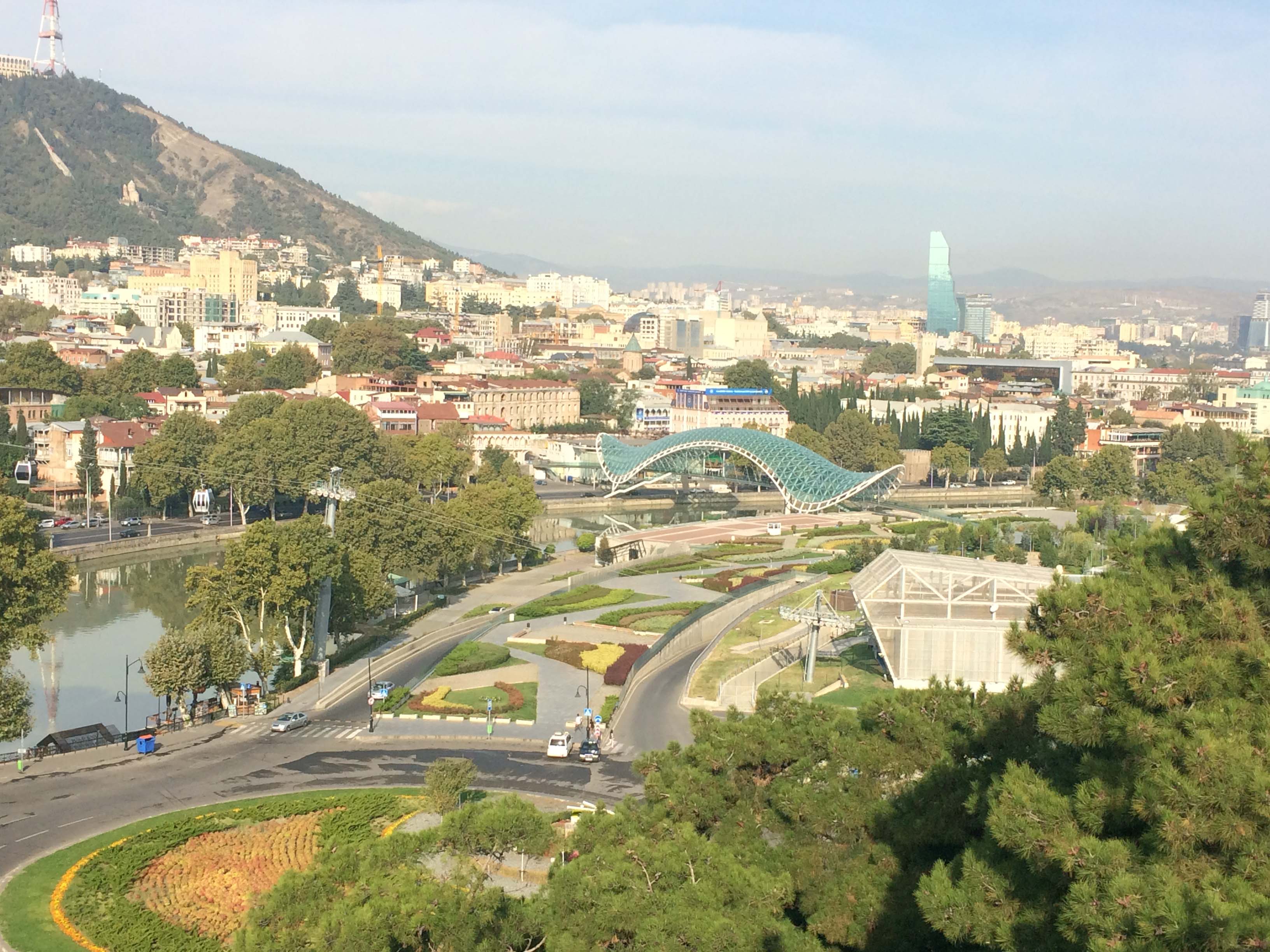
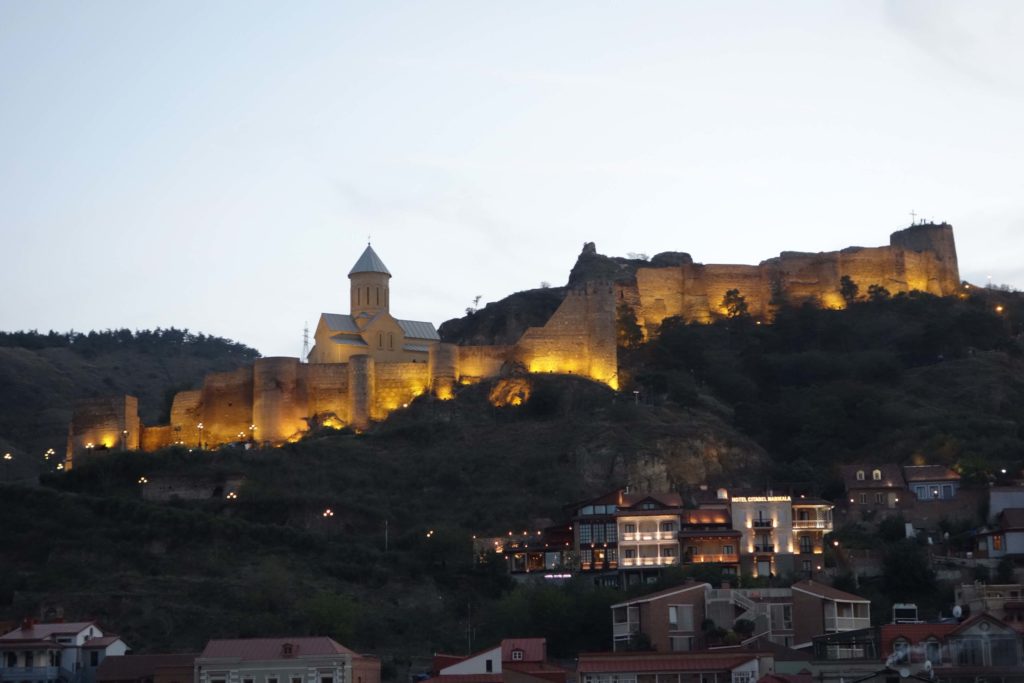
The next day we drove to Kutaisi, and my only comment is: we were lucky to have had such a good driver! the traffic was heavy and the road was sometimes shared with cows, pigs and sheep that were strolling on our lane more than once, but all survived…That evening we had a short tour of Kutaisi, visited the Bagrati Cathedral and again enjoyed the very good weather Georgia had reserved for us.
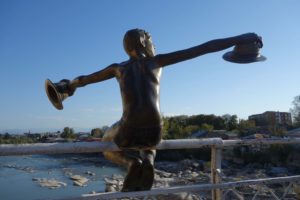
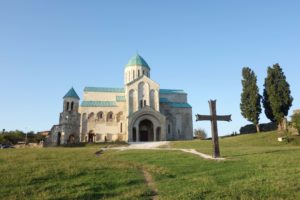
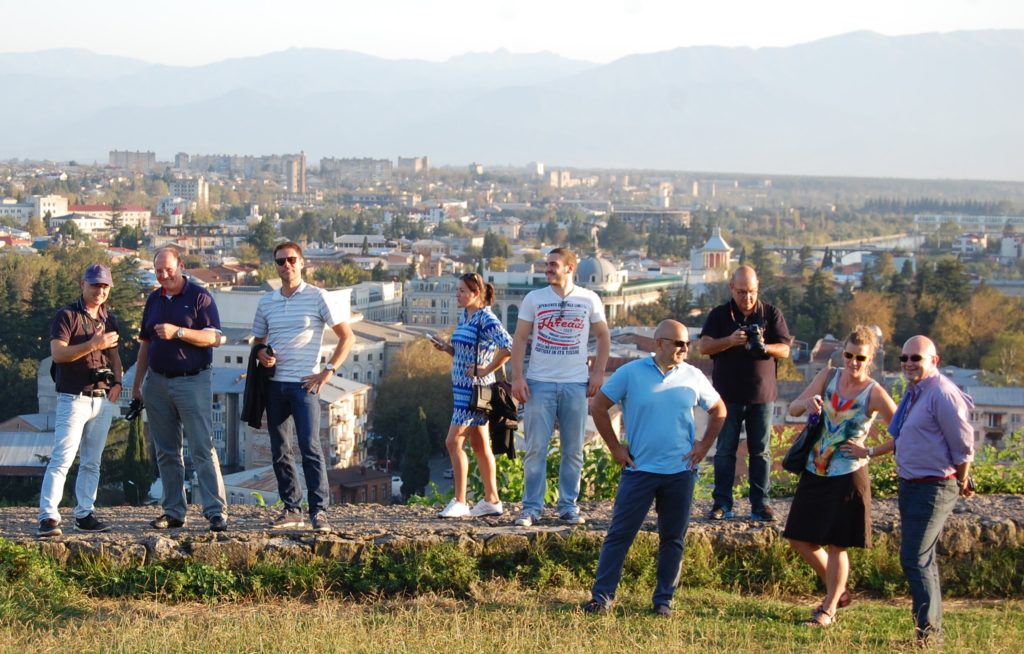
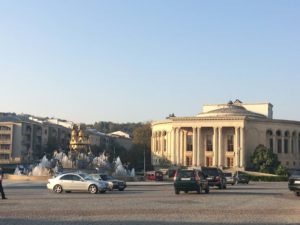
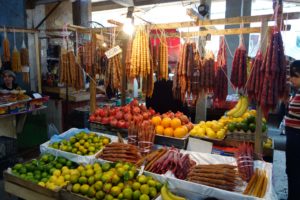
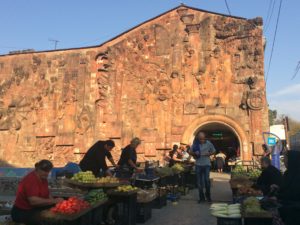
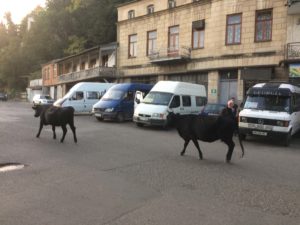
After this cultural programme, the RTC was opened on Thursday morning in the lecture hall of the Kutaisi State University by the organizers and even the Major of Kutaisi came by to welcome everybody. The first day was dedicated to Headache, of which I cannot report myself as I am not a medical specialist. But for this you have the report of the organizer.
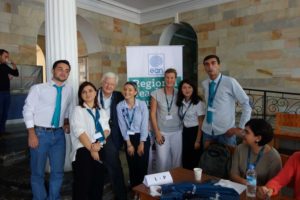
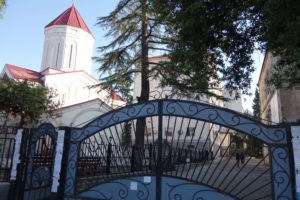
The faculty of the second day (who did not lecture that day) had the chance to see some of the surrounding countryside of Kutaisi, and I accompanied them that day. We visited the canyon of Gachedili, where we all took a raft for a short tour. The second visit brought us to the Prometheus Cave, an underground maze of stalactites and stalagmites that is about 1km long and deep down in the mountain.
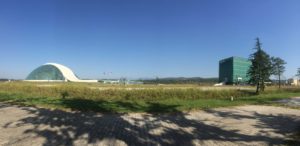
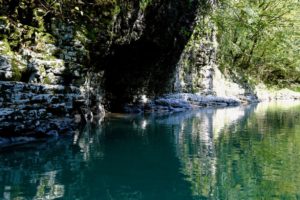
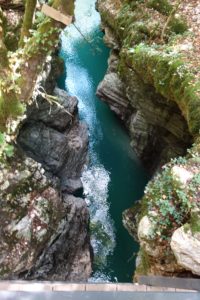
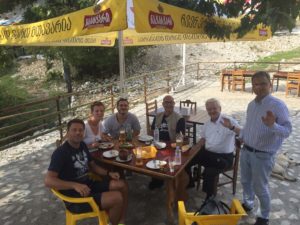
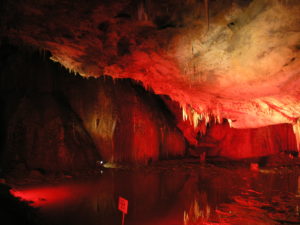
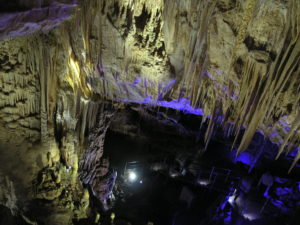
The second day of the course was dedicated to Stroke, and after the morning lectures, two practical half-day hands-on courses for smaller groups of participants were scheduled in the afternoon, both held at the Evex learning center (Clinical Ultrasound and neuromuscular electrophysiology). This was a great success with much positive feedback to bring home. The coffee and lunchbreaks in-between gave the participants the possibility to chit-chat and mingle with the faculty, and both sides enjoyed this friendly way of communication very much. To be in Georgia also gave me the chance to work on some projects with our EAN archivist, Prof. Klaus Toyka, who was not only part of the faculty, but also part of the musical entertainment, by playing the violin.
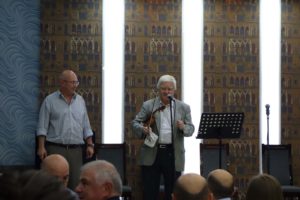
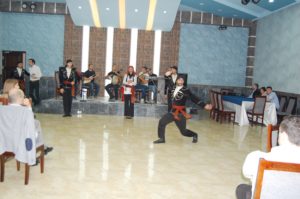
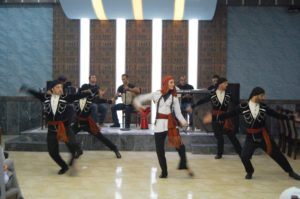
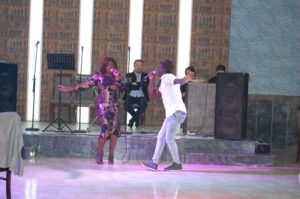
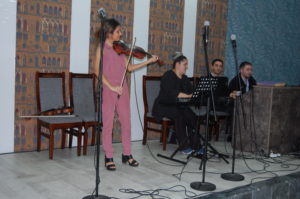
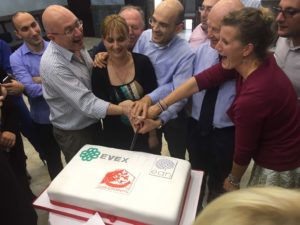
That evening we had the gala evening where all the faculty and invited participants met and enjoyed a very special treat: local music and dance. Two participants even did a duet that left us speechless. The traditional dancers were very energetic with their fast steps and swirls, and Professor Toyka first plaid a solo on his violin, and then joined with local musicians.
On the last day, various topics were on the agenda, and I even stayed to listen to some lectures that I was partly able to follow. After the course, all participants received their certificate, and during lunch everybody had the chance to say good-bye to each other.
The faculty and myself had to hop in the next bus to get back to Tbilisi, where we had to say good-bye to our host, Professor Zaza Katsarava, whom we couldn’t thank enough for bringing us all together in his home country of Georgia. That evening we had a small dinner, before adjusting to 3 hours of sleep… then it was time to get back into that nasty overnight-flight back home.
It was great to be in Georgia, happy to be part of that group, getting to know Professors I only knew by email and seeing the nice interaction with the participants and the need for courses like this in regions far away from the EAN congresses.
We realized that a lot has been done and restored since Georgia became independent from the Russian Federation merely 25 years ago. It is just very different to how we live in Western Europe and conditions are sometimes hard to handle. But the Georgians are such lovely people, very warm and welcoming, we had only the best experience one could have. Of course, we were privileged to be guided to the historical places and nice sightseeing spots, but once you stepped away for the paths and looked around, you could expand your personal experience. Our hosts prepared everything for the faculty and myself so nicely, and we enjoyed Georgian food, music and warmth every day and evening when we had dinners with locals and could talk to them.
I bring lots of impressions home with me and information I could use for my work when helping organising these RTCs. I am thankful to have been part of this adventure (it was the furthest East I had ever been).
More on Georgia can be found here or by reading our last country of the month article here on EANpages.
